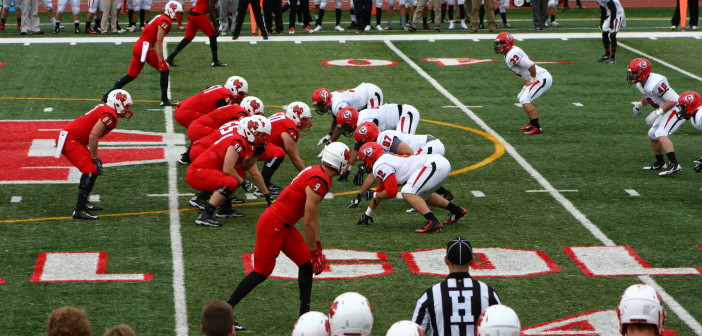Megann Horstead
Content Producer
Today’s sports are increasingly taking social responsibility in promoting awareness for health-related causes, but with it, there is a lot of debate whether their support is useful.
Recently the Chicago Black Hawks hosted “Hockey Fights Cancer Night” on Sunday, Oct. 26 at the United Center.
In support of cancer, the Blackhawks players wore purple warm-up jerseys with lavender ties. According to Chicagoblackhawks.com, jersey’s and ties will be auctioned off Oct. 27-Nov. 10 on the team’s website. Proceeds will go to Chicago Blackhawks Charities.
Although the National Hockey League (NHL) and National Hockey League Players’ Association (NHLPA) will donate proceeds to local and national cancer organizations in all 30 NHL markets, sports are sometimes questioned for their actions to take social responsibility.
According to Corruption of Sports, “games quickly lose part of their charm when pressed into the service of education, character development or social improvement.”
Historically speaking, sports began as a Greek contest striving to satisfy a need for competition and physical exertion.
Games are commonly marked with an ability to elicit skill and intelligence through activity giving little contributions to the community.
Others sometimes speculate how sports contribute little to the good of society.
The popularity and spread of sports in society has turned into work, decreasing the athlete’s pleasure to a passive spectator’s—the opposite of what health and vigor sports promote, according to Corruption of Sports.
Breast Cancer Action coined the term “pinkwashing,” to depict organizations acting unethically in their efforts to support health-related causes, according to thinkbeforeyoupink.org.
But there are others finding benefits in sports taking on social responsibility.
“To date, through the NHL’s U.S. and Canadian charitable foundations, more than $12.8 million has been raised under the Hockey Fights Cancer initiative,” said blackhawknhl.com.
Last summer’s ALS Ice Bucket Challenge took to the web and created a lot of traffic. Sometimes the initiatives’ benefits were questioned.
Since July 29, 2014, the ALS association has received $115 million in donations, according to alsa.org.
The debate concerning this potential issue not only in major leagues sports but at the collegiate level too.
North Central President Troy Hammond took the ALS Ice Bucket Challenge during a welcome week football game.
Although the usefulness of sports in their efforts to support consumer social responsibility or social marketing remains under investigation, there is proof that sports have value in the community.

